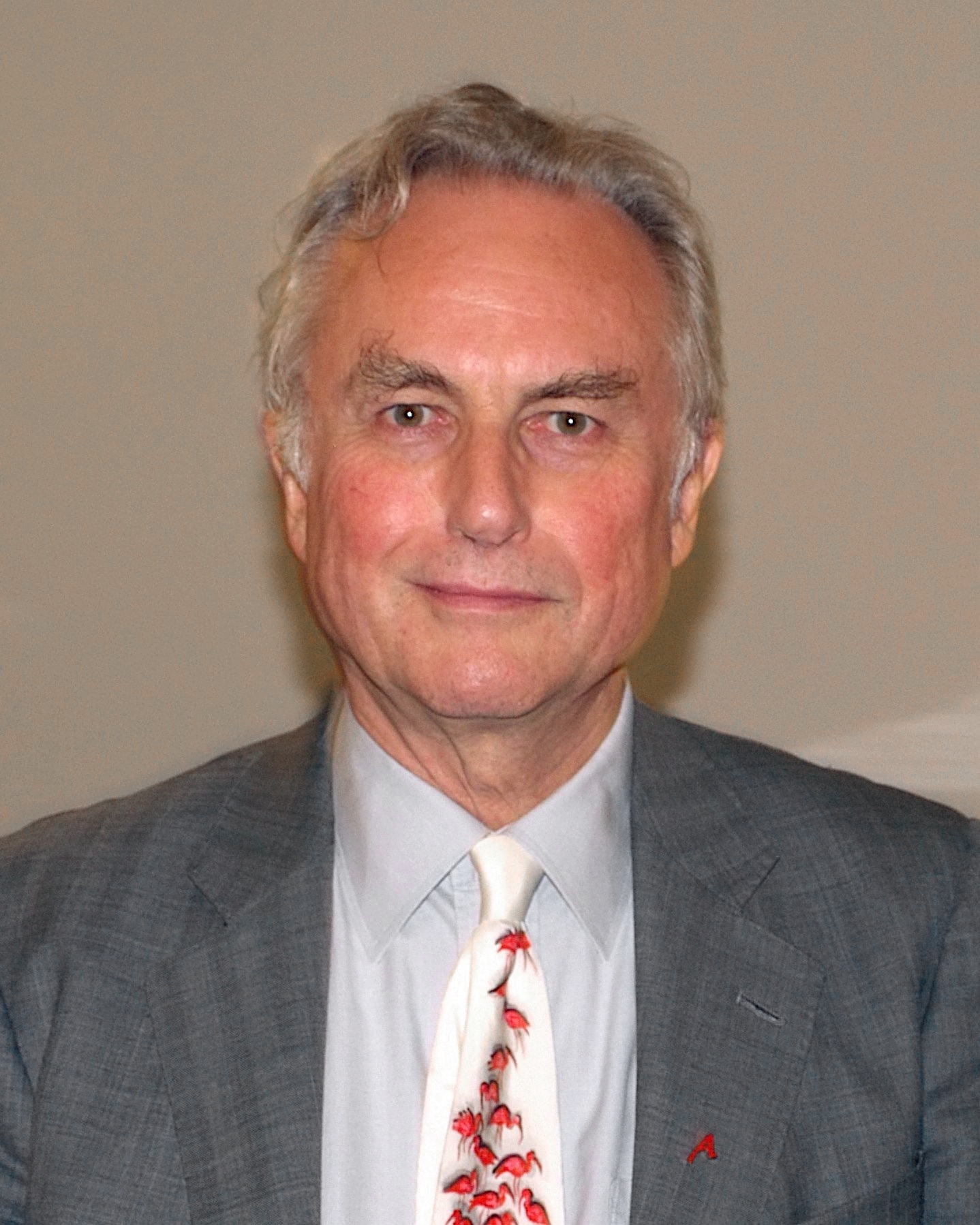Cytaty z książek, Bóg urojony (2006)
Richard Dawkins słynne cytaty
Źródło: Jacek Hołówka, „Gazeta Wyborcza”, cyt. za: racjonalista.pl http://www.racjonalista.pl/ks.php/k,1684
Cytaty z książek, Bóg urojony (2006)
Źródło: s. 412.
oświadczył.
Cytaty z książek, Bóg urojony (2006)
Cytaty z książek, Bóg urojony (2006)
Cytaty z książek, Bóg urojony (2006)
Richard Dawkins Cytaty o religii
za ten „umysłowy wirus” autor uważa religię.
Cytaty z książek, Bóg urojony (2006)
Cytaty z książek, Bóg urojony (2006)
Richard Dawkins cytaty
Cytaty z książek, Bóg urojony (2006)
„Ale”?! Dlaczego nie „i”?
Cytaty z książek, Bóg urojony (2006)
Cytaty z artykułów
Źródło: „The Atheist”, Gordon Snack, Salon.com, 28 kwietnia 2005
Cytaty z książek, Samolubny gen (1976)<span id=Samolubny gen> </span>
Cytaty z książek
Źródło: Rozplatanie tęczy (ang. Unweaving the Rainbow, 1988)
Cytaty z książek
Źródło: Fenotyp rozszerzony (ang. The Extended Phenotype, 1982
Autorka: Agata Bielik-Robson, rozmowa Agaty Bielik-Robson i Tadeusza Bartosia, Ateizm, gnoza i magiel polski, krytykapolityczna.pl, 16 marca 2013 http://www.krytykapolityczna.pl/artykuly/czytaj-dalej/20130316/ateizm-gnoza-i-magiel-polski
Cytaty z książek, Bóg urojony (2006)
Cytaty z książek, Bóg urojony (2006)
Cytaty z książek, Samolubny gen (1976)<span id=Samolubny gen> </span>
Cytaty z artykułów
Źródło: Karol Jałochowski, W cieniu zakwitających teorii, „Polityka” wydanie specjalne, 6/2010.
Richard Dawkins: Cytaty po angielsku
https://twitter.com/RichardDawkins/status/282854320133775360
Twitter
[Dawkins, Richard, Richard Dawkins, Why don't animals have wheels?, Sunday Times, November 24, 1996, http://www.simonyi.ox.ac.uk/dawkins/WorldOfDawkins-archive/Dawkins/Work/Articles/1996-11-24wheels.shtml, October 29, 2008, http://web.archive.org/web/20070221073440/http://www.simonyi.ox.ac.uk/dawkins/WorldOfDawkins-archive/Dawkins/Work/Articles/1996-11-24wheels.shtml, February 21, 2007]
The Richard Dimbleby Lecture: Science, Delusion and the Appetite for Wonder (1996)
Darwin's Dangerous Disciple: An Interview by Frank Miele (1995)
Dawkins on Q&A (), replying to a Muslim man who asked about 'absolute morality'. https://www.youtube.com/watch?v=mu7AQTs_y5A
The Evolutionary Future of Man (1993)
Źródło: The Selfish Gene (1976, 1989), Ch. 1. Why Are People?
Źródło: The Blind Watchmaker (1986), Chapter 7 “Constructive Evolution” (p. 184)
arbitrarily assumed to be male
Viruses of the Mind (1993)
[1998, Unweaving the Rainbow, London, Allen Lane, 9780713992144, 18827466M, Preface]
Unweaving the Rainbow (1998)
"Good and Bad Reasons for Believing" [open letter to his daughter]
A Devil's Chaplain (2003)
Answering audience questions after a reading of The God Delusion http://www.youtube.com/watch?v=6mmskXXetcg,Randolph-Macon Woman's College,
Posed question: "This is probably going to be the most simplest one for you to answer, but: What if you're wrong?"
BBC's Have Your Say (December 2007)
https://twitter.com/RichardDawkins/status/307369895031603200 (28 February 2013)
Twitter
Part 1, 00:00:55
The Root of All Evil? (January 2006)
Źródło: River out of Eden (1995), Ch. 5: The Replication Bomb
Źródło: The Selfish Gene (1976, 1989), Ch. 5. Aggression: stability and the selfish machine
“Human vanity cherishes the absurd notion that our species is the final goal of evolution.”
Źródło: The Blind Watchmaker (1986), Chapter 3 “Accumulating Small Change” (p. 50)
there are always sufficiently gullible patients
Foreword to Snake Oil and Other Preoccupations by John Diamond, Vintage, 2001.
Forewords
Expelled: No Intelligence Allowed ()
The Enemies of Reason, "The Irrational Health Service"
The Enemies of Reason (August 2007)
https://twitter.com/RichardDawkins/status/336048706853937152 (19 May 2013)
Twitter
At Randolph-Macon Woman's College, Broadcasted by C-SPAN2 http://richarddawkins.net/home
https://twitter.com/RichardDawkins/status/358514912789676033 (20 July 2013)
Twitter
http://www.youtube.com/watch?v=roFdPHdhgKQ&t=59m29s
Richard Dawkins vs. Jonathan Sacks - BBC's RE:Think Festival (2012)
